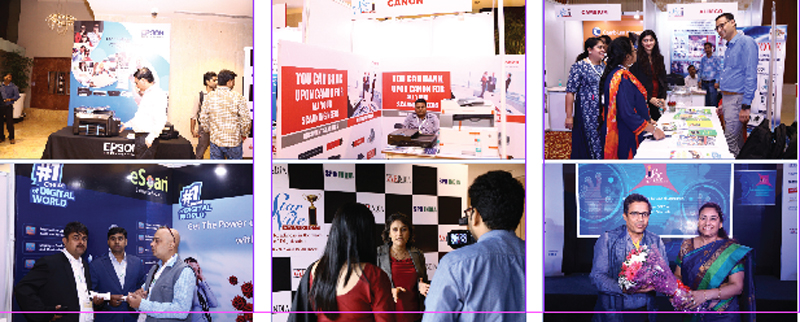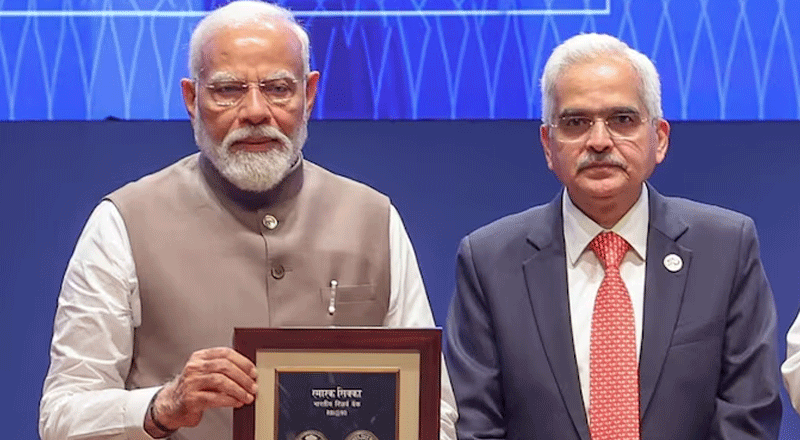SPO India played host to the event themed ‘Step Towards Sustainability’ that was held on November 3rd, at Hotel The Lalit, New Delhi. Touted as one of India’s most popular events, the summit brought together all stakeholders from NGOs, corporates and government on a common platform to discuss on topics on how to make the Indian economy sustainable through CSR. The day-long session was organised by Kalinga Digital Media, the information-communication-technology (ICT) publishing house that celebrated its 18th anniversary.
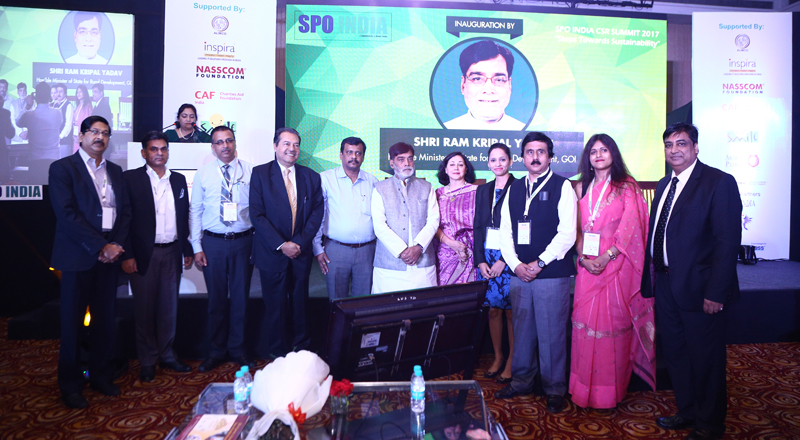
[(From Left to Right): Mr. Shrikant Sinha, CEO, NASSCOM Foundation; Mr. Vishal Bhardwaj, Group Head – CSR – Dalmia Bharat Group; Mr Ajay Choudhary, DGM – Marketing ALIMCO; Dr. Bhaskar Chatterjee, Former DG & CEO, Indian Institute of Corporate Affairs; Mr Deepak Kumar Sahu, Publisher and Group Editor, (VARINDIA & SPO INDIA); Shri. Ram Kripal Yadav, Hon’ble Minister of State for Rural Development and Land Resources; Ms. Madhu Madan, Country Head – Resource Mobilization, HelpAge India; Ms. Dipanwita Chakraborty, Regional Director, Corporate Responsibility & Sustainable Development, Asia Pacific, Cargill; Mr Avijeet Kumar, COO, CAF India and Ms. Meghna Garg, Associate Director – Facilities & Administration, Thomson Reuters]
Shri Ram Kripal Yadav, Hon’ble Minister of State for Rural Development and Land Resources, Government of India was the Chief Guest at the event, who kick-started the event by lighting the ceremonial lamp. The Hon’ble Minister in his keynote address emphasised that CSR is the need of the hour and that it should be promoted for the welfare of the country.
The summit had three sessions – the inaugural session followed by two panel sessions. The first panel discussion of the day was titled – Technology helping in Sustainable Development and the discussion was joined in by Mr. Shrikant Sinha, CEO, NASSCOM Foundation; Mr. Deepak Kumar Sahu, Group Editor (VARINDIA and SPO INDIA); Chief Guest, Shri. Ram Kripal Yadav, Hon’ble Minister of State for Rural Development and Land Resources; Dr. Bhaskar Chatterjee, Former DG & CEO, Indian Institute of Corporate Affairs and Ms. Meenakshi Batra, CEO, CAF India.
The second panel Discussion was on ‘CSR & Sustainability in Business’, which was moderated by Radhika Ralhan, Head Innovations for Exponential Impact Unit, CAF India. The speakers included Ms. Dipanwita Chakraborty, Regional Director, Corporate Responsibility & Sustainable Development, Asia Pacific, Cargill; Dr Angeli Qwatra, CEO, Centre for Disaster Risk and Safety; Mr Avijeet Kumar, COO, CAF India; Ms. Akanksha Sharma, Head- CSR & Sustainability, Jubilant FoodWorks Ltd.; Mr. Vishal Bhardwaj, Group Head – Corporate Social Responsibility – Dalmia Bharat Group; Dr. Bhaskar Chatterjee, Former DG & CEO, Indian Institute of Corporate Affairs, Ministry of Corporate Affairs; Mr. Sanjeev Dham, COO, Smile Foundation and Mr. Shrikant Sinha, CEO, NASSCOM Foundation.
The third and the final panel discussion was on CSR @ Women’s empowerment that was moderated by Dr. Bhaskar Chatterjee, Former DG & CEO, Indian Institute of Corporate Affairs, Ministry of Corporate Affairs. It was joined by eminent speakers like Ms. Laxmi Agarwal, Indian Campaigner with Stop Acid Attacks; Ms. Meenakshi Batra, CEO, CAF India; Dr. Vikas Goswami, Head Sustainability – Good and Green, Godrej One; Ms. Rina Dhaka, Fashion Designer; Dr. Bhaskar Chatterjee, Former DG & CEO, Indian Institute of Corporate Affairs, Ministry of Corporate Affairs; Mr. Sanjeev Dham, COO, Smile Foundation; Ms. Mamta Wasan, Senior Vice President, Human Resources, Fidelity National Information Services; Ms. Madhu Madan, Country Head – Resource Mobilization, HelpAge India; Ms. Meghna Garg, Associate Director – Facilities & Administration, Thomson Reuters and Ms. Shivani Wazir Pasrich, Theater Personality, TV host.
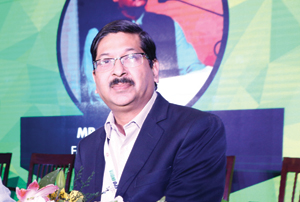
Shrikant Sinha
CEO – NASSCOM Foundation
“When we talk of STGs and 17 of them, we try to see how they are impacting us and what exactly they mean to us. But the question is who creates these STGs? Do we think that the UN owns these STGs or is it the Govt. and the corporates who take responsibility of these STGs or is the NGOs and the civil society who own them? Unless and until we are clear that each and every one of us own the STGs and have the responsibility of achieving these goals, I don’t think we can make any headway. We being the social arm of NASSCOM, we believe in technology and feel that it is today a game-changer in bridging the digital divide.”
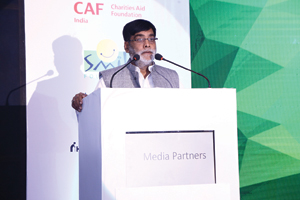 Shri Ram Kripal Yadav
Shri Ram Kripal Yadav
Hon’ble Minister of State for Rural Development and Land Resources
Government of India
“India is a huge country and 70% of its population reside in its villages. Even after 70 years of independence, the condition of the villages or the lifestyle of the people living in these villages has not improved. Development in areas of food, health, electricity, water, sanitation is still a far cry. The people living in a village today are going through many problems and there are families that are not able to meet both their ends. This is leading to people to move to urban areas in search of work and the population in cities and towns are increasing as compared to the rural areas. This is growing to be a major issue today, the rise in population in cities. The government is doing its bit in introducing schemes from time to time for such people but due to challenges in last mile, these schemes are not reaching the right individual. It is here that CSR is going to play a big role and NGOs & different corporates involved in CSR should take this responsibility upon themselves to act as a bridge and provide these services to the people there.”
Panel Discussion I: Technology helps in Sustainable Development
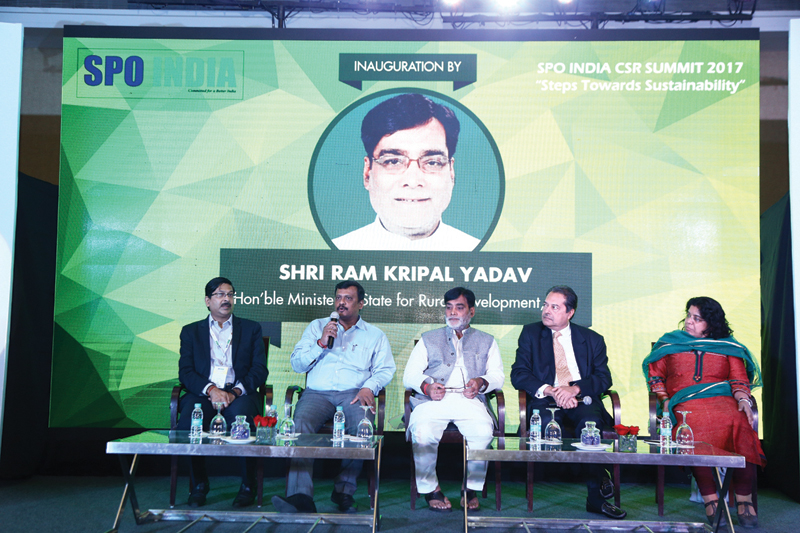 [(From Left to Right): Mr. Shrikant Sinha, CEO, NASSCOM Foundation; Mr. Deepak Kumar Sahu, Group Editor (VARINDIA and SPO INDIA); Chief Guest, Shri. Ram Kripal Yadav, Hon’ble Minister of State for Rural Development and Land Resources; Dr. Bhaskar Chatterjee, Former DG & CEO, Indian Institute of Corporate Affairs and Ms. Meenakshi Batra, CEO, CAF India.]
[(From Left to Right): Mr. Shrikant Sinha, CEO, NASSCOM Foundation; Mr. Deepak Kumar Sahu, Group Editor (VARINDIA and SPO INDIA); Chief Guest, Shri. Ram Kripal Yadav, Hon’ble Minister of State for Rural Development and Land Resources; Dr. Bhaskar Chatterjee, Former DG & CEO, Indian Institute of Corporate Affairs and Ms. Meenakshi Batra, CEO, CAF India.]
In the 1st panel discussion of the day, Technology helps in Sustainable Development, Mr. Deepak Kumar Sahu, Group Editor (VARINDIA and SPO INDIA), opened the floor for the audience to interact with the Minister and discuss on the topic of how rural development can be possible with general support.
Shri. Ram Kripal Yadav, Hon’ble Minister of State for Rural Development and Land Resources while talking about limited resources and reach, requested people to engage and participate with the ministry of rural development as there is a need to get involved in such initiatives. “The ministry of rural development has been working for roads, water, and toilets, which now has become a separate department in itself. The CSR approach envisages doing well for the society and I will say everybody is working according to their level but there is the need to speed this up this and engage yourself more with us. I urge the media too to help Ministry in working towards this and so that the CSR approach and funds can be utilised to its best. As our PM says, this is not possible by only one’s wish or contribution; everybody has to equally indulge in it and this should be considered as a mass-movement; everybody should take responsibility as without public participation it’s not possible.
In context of the mass constructions of toilets in India, it cannot be a success until and unless beneficiaries will cooperate with the govt. So there is a need to raise awareness and if the beneficiaries themselves take the responsibility of maintenance, only then it will be called a success. Therefore, the PM appeals to the national populace to join us with the campaign; for this he has instructed his department and has also allocated additional funds for water tanks and for maintenance of the public toilets.”
Enumerating the activities that NASSCOM Foundation takes up, Mr. Shrikant Sinha, CEO, NASSCOM Foundation said, “NASSCOM Foundation along with Capgemini and Aricent takes up many development works. We have given skill training to more than 1 lakh rural youth so that they become ready for the \job market. We have also visited schools and colleges from tier 2 & 3 cities where the percentage of placement is less than 50% and picked up students from there to train them. Right from soft skills, to advanced engineering skills, we have imparted training in each of these areas.”
Dr. Bhaskar Chatterjee, Former DG & CEO, Indian Institute of Corporate Affairs in his appeal to the government urged that whatever programmes and schemes it introduces at the district and rural level should be linked to CSR. “When we were drafting the CSR law for the country, I always put his idea forward that whenever there is any development work going on at any district, and if the respective district magistrate or administrator link them with CSR, then the fund available for CSR fund gets stronger and the development work also speeds up where NGOs can also give a helping hand.”
Ms. Meenakshi Batra, CEO, CAF India highlighted the fact that NGO and foundation headquarters based out of cities should be made aware of rural development and they should be asked to work there for rural upliftment. “Many of the CSR decisions are taken at the corporate headquarters, particularly in big cities like Mumbai, Gurgaon and there is a need to raise awareness about rural development among those decision makers. If you take the example of CAF, we have been working for rural development in last 5 years and we do close to 50-60% work in these areas. So there I felt that NGOs based out of big cities should be made more aware about the issues prevailing in the rural areas.”
Panel Discussion II: CSR & Sustainability in Business
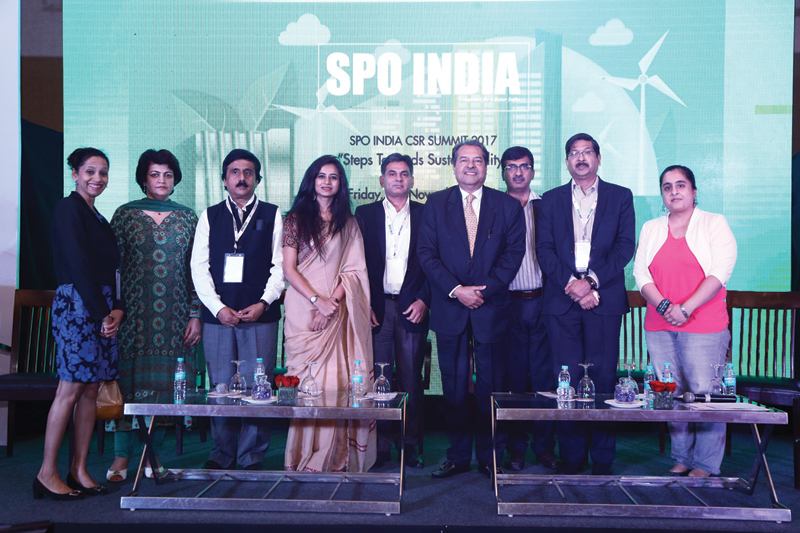
[(From Left to Right): Ms. Dipanwita Chakraborty, Regional Director, Corporate Responsibility & Sustainable Development, Asia Pacific, Cargill; Dr Angeli Qwatra, CEO, Centre for Disaster Risk and Safety; Mr Avijeet Kumar, COO, CAF India; Ms. Akanksha Sharma, Head- CSR & Sustainability, Jubilant FoodWorks Ltd.; Mr. Vishal Bhardwaj, Group Head – Corporate Social Responsibility – Dalmia Bharat Group; Dr. Bhaskar Chatterjee, Former DG & CEO, Indian Institute of Corporate Affairs, Ministry of Corporate Affairs; Mr. Sanjeev Dham, COO, Smile Foundation; Mr. Shrikant Sinha, CEO, NASSCOM Foundation and Ms. Radhika Ralhan, Head Innovations for Exponential Impact Unit, CAF India.]
The 2nd panel of the day, CSR & Sustainability in Business that was moderated by Ms Radhika Ralhan, Head Innovations for Exponential Impact Unit, CAF India emphasized on the fact that apart from technology and innovation which are 2 big factors, the third factor is the mindset change. People should be able to realise that technology can help them. There is also the need to make more and more people educated because if today we look at urban people, most of them are not able to get jobs but there are people from villages running to cities in search of work. So there needs to be created an eco-system where jobs are available for such people. It is the people coming together who can make a difference and believing that ‘changes can be done even with a small thing’.
The discussion also stressed corporate philanthropy to be very significant when it comes to driving the entire agenda of sustainable development. There are a number of examples where MNCs have partnered with Non profit organisation for some remarkable sustainable development programs. Dr Angeli Qwatra, CEO, Centre for Disaster Risk and Safety in her speech said that Disaster management should be integral to social and economical development for the country. “Corporates and safe resilient society, they are mutually inter-dependent and corporates have vested interest to have a safe community and CSR can play a critical role in it. Disaster risk reduction is the need of the hour, traditionally in India there has been an approach to disaster response, i.e. to rescue relief and rehabilitate. Corporates have played their role in this and the commercial and industrial associations have been proactively involved in these but India is so prone to natural disasters and we are losing 2% of GDP to disaster management, CSR can effectively be utilised in involving the community in safety preparedness.”
Dipanwita Chakraborty, Regional Director, Corporate Responsibility & Sustainable Development, Asia Pacific, Cargill on the other hand said that Cargill has very consciously talked about corporate responsibility and sustainable development, as two very intertwined and inter-related practices. “We have realised along the way in our 150 years of existence in the world of doing business in 70 countries that what we do and what the business does they merge and lead to sustenance. I don’t think there are siloes there which we were trying to discuss, converge and bring together. That is the direction all of us are moving towards.”
Sanjeev Dham, COO, Smile Foundation said, “We as an organization always talked about giving back to the society so that the actual meaning of CSR is realized. 2 and a half years ago, when the CSR law was enacted, we knew that our best efforts have borne the fruit now. Look at the country’s size today, the population here and the diverse demographics, geographies and CSR has a lot of potential here. There are areas which we need to work on but this is just the beginning and we have a long way to go.”
Avijeet Kumar, COO, CAF India stated that his priority would be to look at collaborations and partnership the way it is been done. “I see corporate philanthropy as very significant when it comes to driving the complete agenda of sustainable development. Globally we are noticing the power that companies are gaining now. I take the liberty to say that state welfare is giving way to business welfare and there are number of examples where multi-national corporates have partnered with non-profit organizations for some really good remarkable sustainable programmes. In past, there have been companies that have been doing such philanthropies like the TATA, Birla and the Bajaj and there are some which are starting all afresh. I also see international grants and funds shrinking in India.”
Vishal Bhardwaj, Group Head – Corporate Social Responsibility – Dalmia Bharat Group remarked that the priority of the cement sector has already been defined in the sense from the CSR point of view that focuses largely on sustainable livelihood and climate integration. He also pointed out that it is high time to innovate and use more technology and large network for achieving our goals. “Of late we have shifted gears and got into strategy CSR that are completely aligned with the SDGs. Also because the group has a leading business in cement, and sustainability has always been an issue with cement sector. We are conscious of our ecological footprints even though the cement sector has done amazingly well in the last couple of decades.”
Shrikant Sinha, CEO, NASSCOM Foundation too viewed that technology and innovation are going to play as much an important role as do change of mindset. “Unless and until people realize that yes, this technology can help them; the wind of change cannot be ushered in. Take the example of rural farming, through traditional methods they are growing cotton or any other crops, but through technology they are examining how the soil is and how it can improve the growth of their crops. But the mindset has to change for the farmers for them to adopt such technology. Probably, another thing is we need to make more and more people educated. Can we create an ecosystem where we are able to make available jobs for people from rural areas who are educated? We should have the belief that people together can make a big difference.”
Akanksha Sharma, Head- CSR & Sustainability, Jubilant FoodWorks said, “When we talking about CSR & Sustainability, it is very important now that we understand the boundaries in a very integrated manner. If I talk about the practices we have adopted as a progressive organization in terms of creating a value-chain, we are working very closely with the farmers, helping them in developing an integrated model again of an alternate livelihood which would eventually place it in the vale chain of their business at all level. This is how we should view CSR & Sustainability and not just in isolation.”
Dr. Bhaskar Chatterjee, Former DG & CEO, Indian Institute of Corporate Affairs, Ministry of Corporate Affairs presented his views that the idea of CSR and sustainability being two different siloes is out of question. “These are two integrated aspects of the same word – global development and the idea is to do global development in a sustainable manner and coordinate the entire direction. The subsets of that are to do it responsibly. So if we are looking at responsible corporate, responsible companies, then of course the entire sustainability spectrum comes into the way that these companies are managed. The CSR piece in this case at how can you use CSR funding is unique, because our CSR in India is unique and nowhere else in the world would you find such pattern.”
Panel Discussion III: CSR @ Women’s empowerment
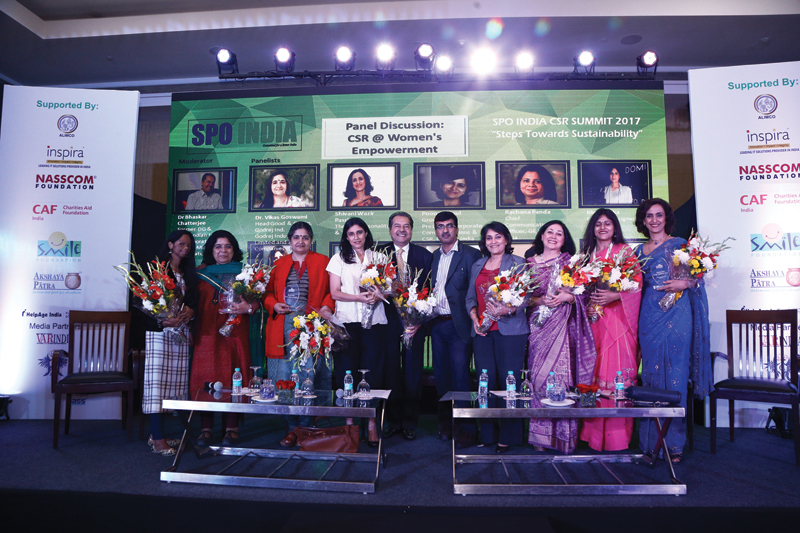
[(From Left to Right): Ms. Laxmi Agarwal, Indian Campaigner with Stop Acid Attacks; Ms. Meenakshi Batra, CEO, CAF India; Dr. Vikas Goswami, Head Sustainability – Good and Green, Godrej One; Ms. Rina Dhaka, Fashion Designer; Dr. Bhaskar Chatterjee, Former DG & CEO, Indian Institute of Corporate Affairs, Ministry of Corporate Affairs; Mr. Sanjeev Dham, COO, Smile Foundation; Ms. Mamta Wasan, Senior Vice President, Human Resources, Fidelity National Information Services; Ms. Madhu Madan, Country Head – Resource Mobilization, HelpAge India; Ms. Meghna Garg, Associate Director – Facilities & Administration, Thomson Reuters and Ms. Shivani Wazir Pasrich, Theater Personality, TV host.]
The 3rd panel of the day, CSR @ Women Empowerment was moderated by Dr. Bhaskar Chatterjee, Former DG & CEO, Indian Institute of Corporate Affairs who set the context by stating why it is increasingly becoming important for addressing the issue of woman empowerment in today’s time. The panel that included women representing different industry and stream discussed on some of the key issues that continue to remain a thing of concern for women empowerment.
We are aware of many problems that women face in everyday lives and in every sphere of activities. But it is upon us of what best we can do for women in every single space and make them feel lighter and better. Achieving gender equality and empowerment of all women and girls, rests upon unlocking the full potential of women. Social, Economic and Political empowerment, including education for women, health of women, mobility of women, participation of women in various fields and also protection of women against Gender based violence are major pillars of creating an enabling environment for empowering women overall. But whatever a woman does, she should be consistent and in that consistency lies success. For instance, it is a regular scenario for a woman marketing professional, where she goes for meetings, present proposals, but at the end of the day does not even meet with partial success. But we learn to be consistent in our deeds by facing such a situation, and accept whatever challenges come to us. But that does not mean we get accepted in whatever way the world perceives us. We have to break out of that mould of having taken for granted and thereby submitting to the requirements of the family or society.
GLIMPSES FROM THE EVENT
